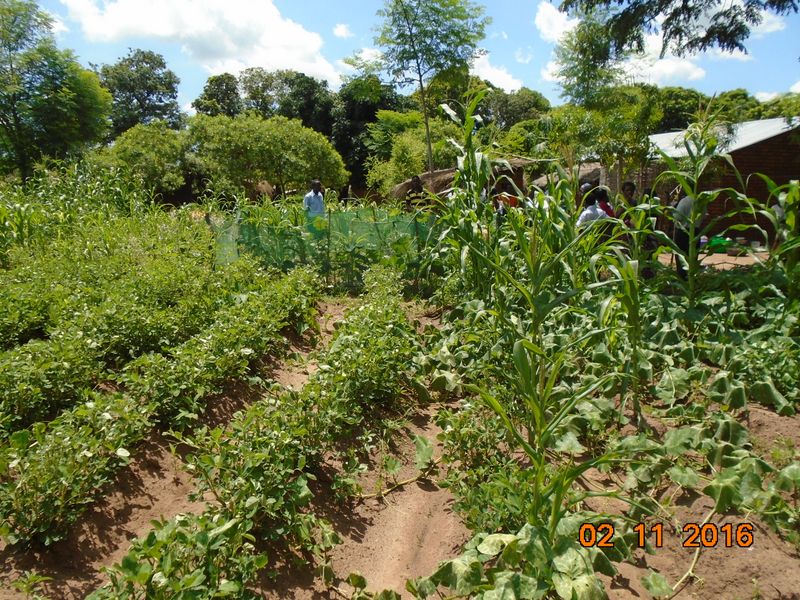Kusamala continues to provide advisory services to partner organizations and farmers under the DCA project. This project is mainly about mainstreaming climate smart agriculture into solar irrigation technology. Farmers are being trained in agroecology techniques and they implementing them in their various irrigation schemes. Recently, Eston Mgala, the Project Manager for our DCA Project and Henock Chingagwe the new, Agribusiness Coordinator on the Project, took a one-week trip to the project’s sites in Nsanje, Thyolo, and Mzimba. The main objective of the trip was to introduce Henock to the staff of the partner organizations and for him to ascertain the progress of the project on the ground. On the trip, Eston and Henock held meetings with the staff of the partner organizations: Churches Action in Relief and Development (CARD), and Christian Services Committee (CSC) and met with farmers on the ground.
One of the goals of the DCA project is crop diversification. Farmers are encouraged to plant vegetables such as broccoli, lettuce, and herbs in addition to maize. Through visits with farmers, Henock saw that in some instances farmers have embraced diversifying their crops and have not only started integrating different plants into their gardens, but are also mulching and using compost manure in order to minimize evaporation, control weeds, and increase soil fertility naturally. However, other farmers are finding diversification more challenging as they are used to growing maize and find it difficult to set aside land to grow other vegetables.
In addition to the challenges of growing diversified crops, some farmers face other challenges, namely a lack of markets. For example, the farmers in Mzimba have a history of growing a variety of vegetables, but have difficulty finding markets for their crops. Much of this can be attributed to a lack of organization amongst the farmers, as they have not developed any farmer co-operative or associations to support a more steady market. Currently, most of the farmers sell their produce to middlemen and are unable to make the profit they would have, if they were better organized as a group.
The good news is that from meetings with project staff of both partner organizations, market research has already been done and potential markets have been identified. There are plans already put in place to build the capacity of the farmers so that they can sustain the identified market. Henock will therefore, go back to these communities together with the partner organization and facilitate capacity building training workshops for the farmers.






Is this organic CA?
I love broccoli and lettuce being from the north of the globe, but why were these chosen? the right crops for the right place and market, which can change over time of course, but it is vital for success to have a plan.
I don’t grow any of those things here as I don’t have time and energy, I much prefer the local species. But I also don’t grow for a market, sounds like there isn’t a market there (yet) either?